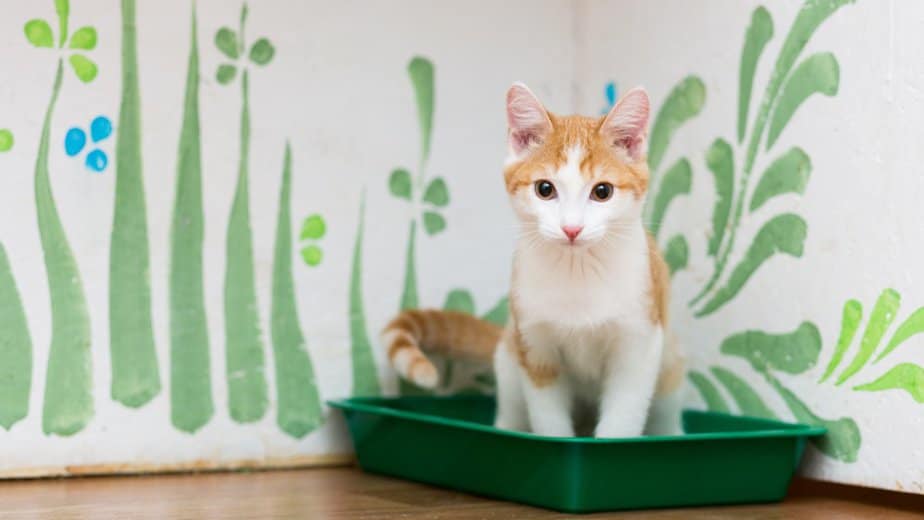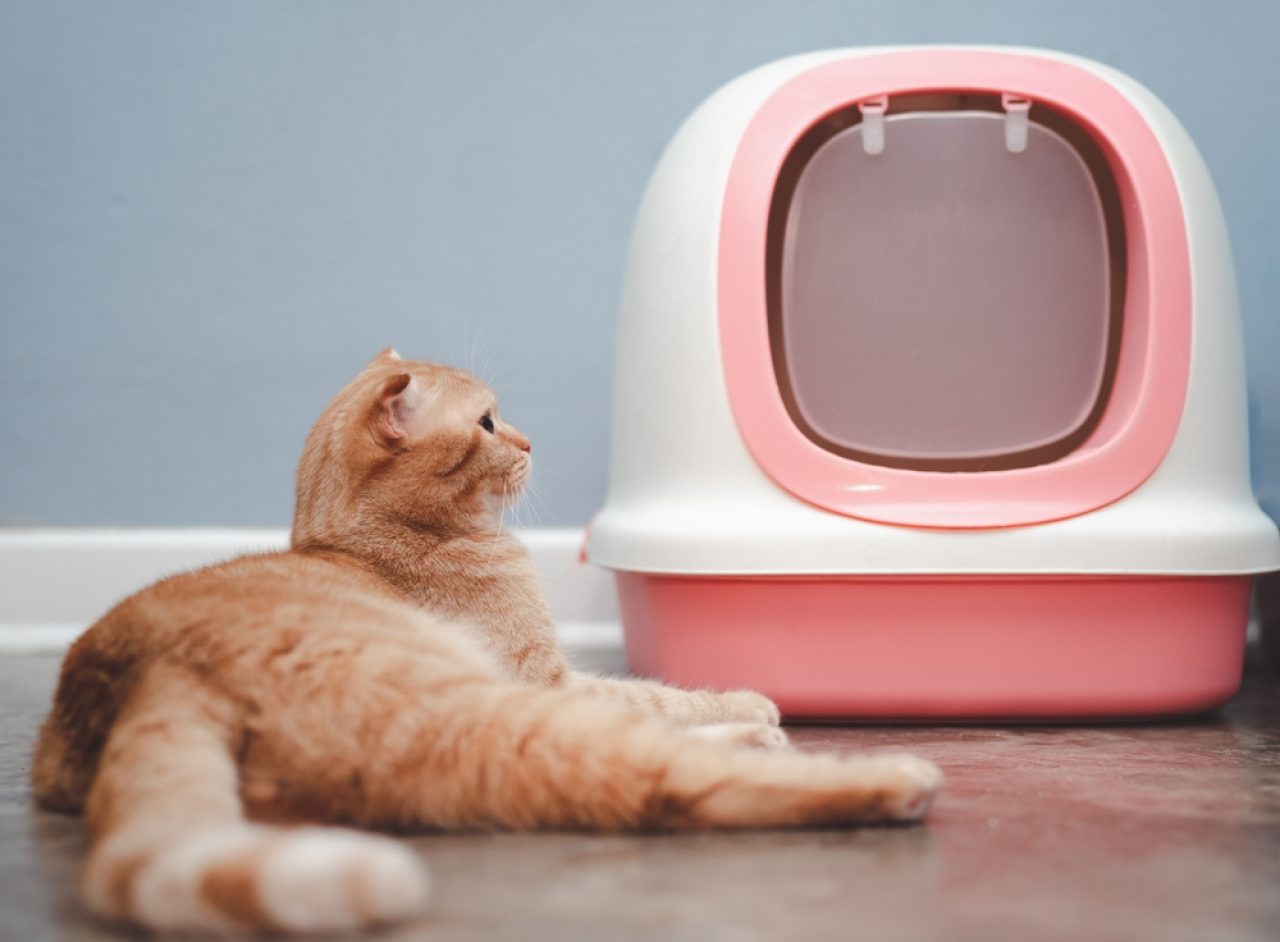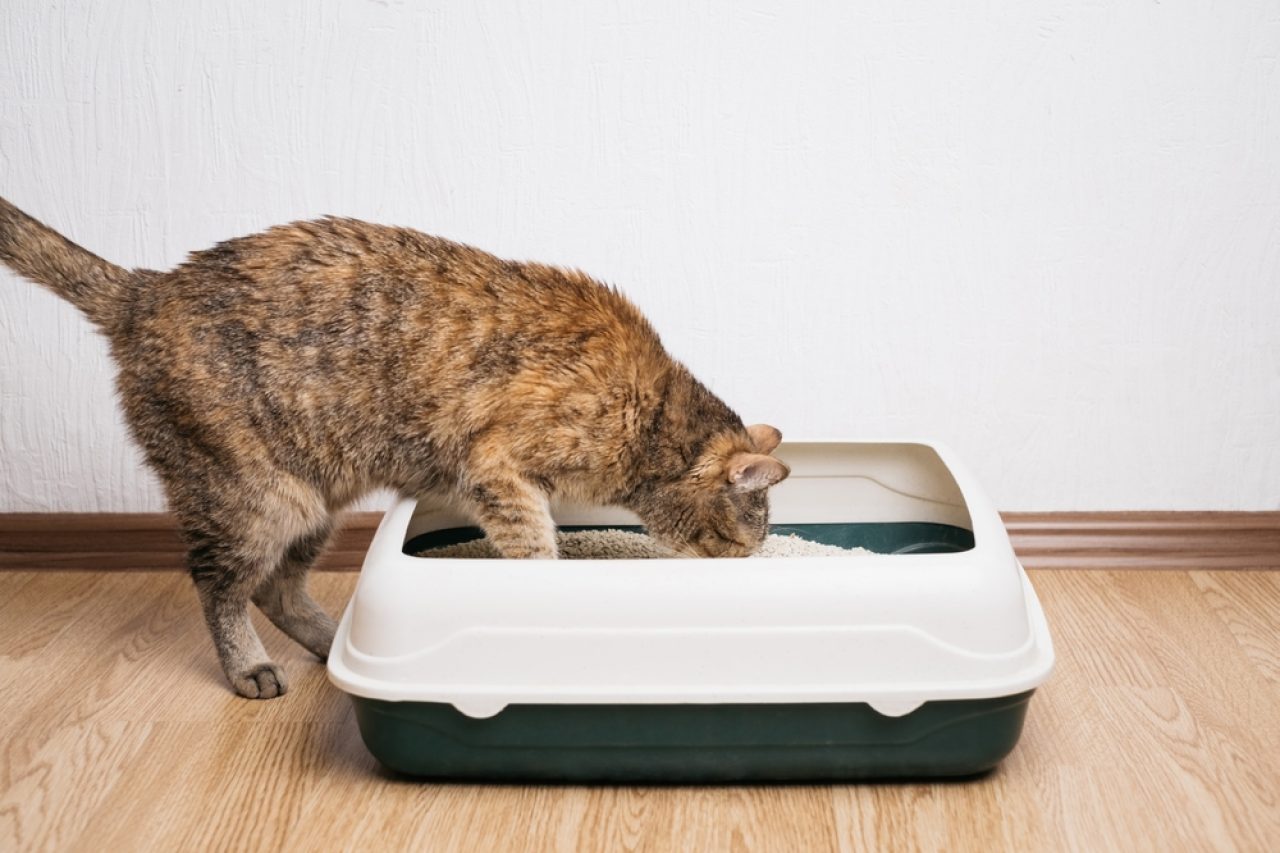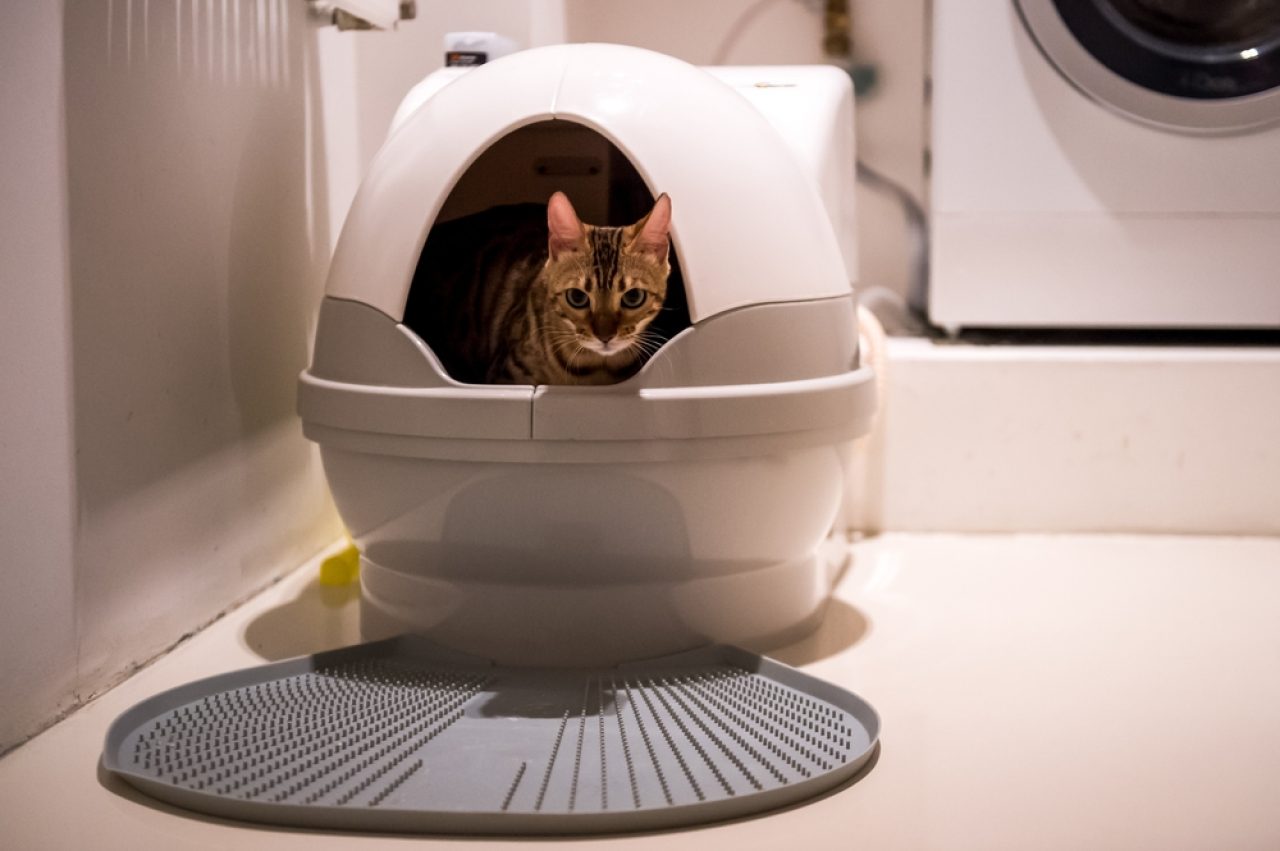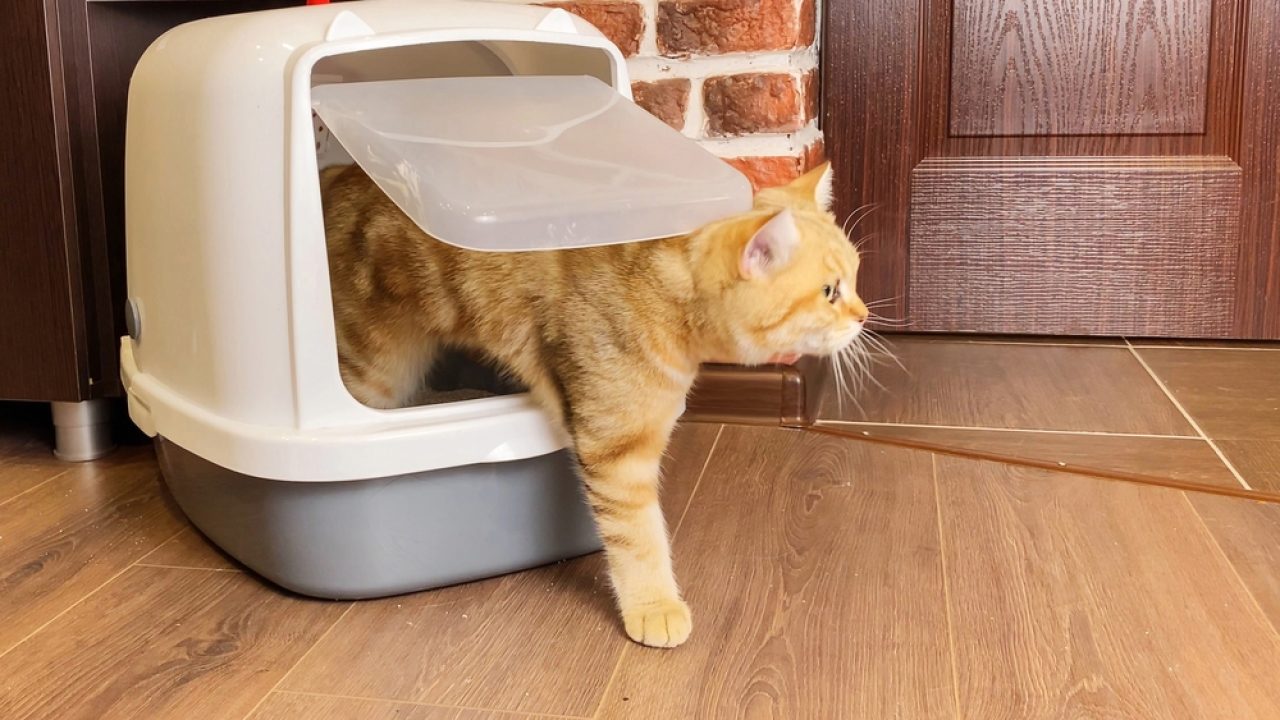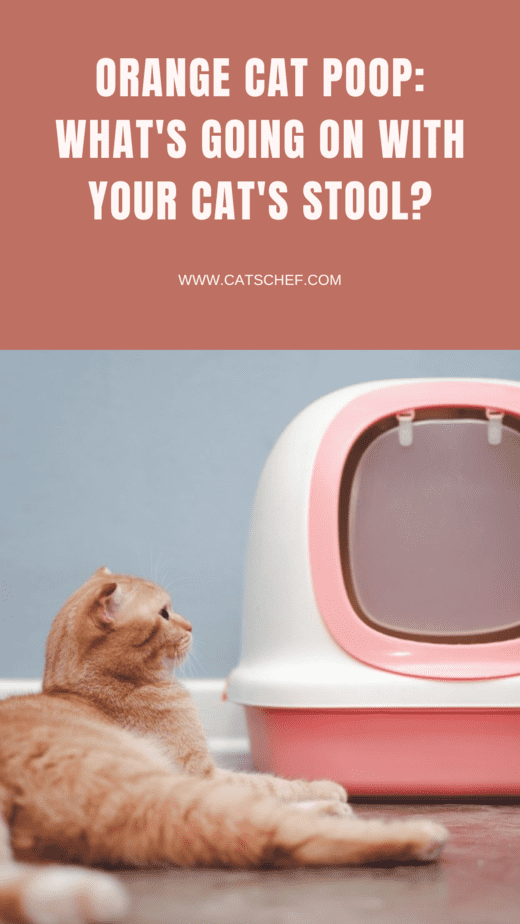📖 Table of Content:
When you’re a cat parent, every slight change concerning your kitty can be worrying. Usually, everything turns out to be okay, but it’s always good to take the changes seriously. Seeing your feline’s feces have changed color shouldn’t be something you ignore. But, what does orange cat poop mean?
When your cat has a healthy bowel movement, her stool is soft and easy to pass. If it’s any other color than brown, it could be an indicator that there are some dietary or digestive issues. It’s normal to be concerned, but you have no reason to panic.
So, what is your cat’s poop trying to tell you? It’s important to check the color, content, and consistency. All of that could tell you a lot about your kitty’s health. Checking her stool is the easiest way for you to assess her well-being. If there’s any change in it, it could be that her body is going through something.
It doesn’t have to mean that your kitty’s having some serious health issues. Sometimes, certain foods and additives can produce orange stool. However, keeping an eye on your fur friend and her litter would be a good idea. If this continues, it would be best to pay a visit to the vet.
There isn’t one single explanation for why this happens. Just like it’s usually the case, there could be many reasons behind it. Before we get to the root of the problem, it’s important to understand what healthy cat poop looks like and when you should be concerned. Let’s learn together.
What does healthy cat poop look like?
Before you analyze your kitty’s stool, it’s essential to know what normal cat poop looks like. When your feline companion is perfectly healthy, her stool is brown, but not black. Depending on what she’s been eating, the shade of brown can vary.
When it comes to its consistency, the poop should be firm, yet pliable and easy to pass. There’s a trick that could help you understand whether her stool is right. If it leaves no residue on the ground when you pick it up – your kitty’s digestive system should be perfectly healthy.
So, next time you clean your kitty’s litter, pay more attention to what you’re picking up. A healthy poop should be uniform in color, easy to scoop, and pliable yet firm. If this is what you find – pay yourself on the back for keeping your kitty hydrated and on the right diet.
When should I be concerned by my cat’s poop?
No one’s excited about cleaning their kitty’s litter, but no matter how fast you want to get it over with, pay attention to what you’re scooping out. Your cat’s poop can tell you a lot. As we’ve mentioned before, if it’s brown, firm, and doesn’t leave residue – you have nothing to worry about.
However, if you notice your cat’s poop changed color and consistency, it means your kitty’s going through something. Her stool can be of different consistency. Whether it’s watery or in the form of small, hard pebbles – they’re all indicators of different health issues and shouldn’t be ignored.
Mushy stool that still has some shape to it usually means that your kitty simply has an upset stomach. If you notice your feline has diarrhea, it could be an indicator of many health issues, and it would be a good idea to contact your vet.
If your feline’s poop comes out as dry, hard pellets, she’s probably constipated. On the other hand, if it comes out watery or you find it outside of her litter box, she’s dealing with diarrhea. It’s also really important to pay attention to the color of her stool, too.
If it’s anything but brown – it could be an indicator of a health issue. Especially if it goes on for more than a day. For example, if the stool has a red hue to it, your kitty might be bleeding from her anus or rectum due to some bacterial infections or other diseases.
Yellow color in cat poop is a good indicator that your feline’s dealing with liver or gallbladder problems. The black hue might be an indicator of bleeding in her GI tract, while green could mean she has a parasitic infection. If you notice any of these, it’s important to contact the vet.
Why is my cat’s poop orange?
Now, we’ve mentioned different colors and consistencies of the cat poop, but what if it comes out orange? It’s usually nothing serious, so don’t panic. Although it could be an indicator of a health issue, there are many other reasons why your cat’s stool has an orange hue.
Whether it’s because of something that she ate today, or something more serious, it’s important not to ignore a change in your feline’s stool. Rule out any possible reasons and think of any other symptoms you might have noticed.
If there’s still something off about it, it’s always a good idea to contact the vet and make sure that everything’s okay with your dear furbaby. Before you do so, let’s see what could be the possible reasons you scooped out orange poop from your cat’s litter today.
1. It could be because of something she ate
When you were cleaning the litterbox, you noticed orange cat poop. Before you go into full panic mode, think about what your cat ate today. It’s always important to rule out the diet as a possible reason first, so you can focus on other things that could’ve caused this.
Certain foods and additives often cause orange poop in cats. If her stool goes back to brown after a day, that’s probably the reason it happened. A lot of orange foods cause this. Whether it’s naturally or chemically orange, it can show in her poop. Beta-carotene, for example, is the orange pigment that can cause orange cat poop.
These pigments can often be found in a variety of vegetables, fruits, oils, and cereals. Other foods that are high in beta-carotene are carrots, sweet potatoes, pumpkins, and other winter squash. In short – if your feline’s been eating anything even slightly orange – it could cause her poop to be the same color.
2. Orange cat poop can be an indicator of some health issues
It’s highly likely that your cat’s poop is orange because of the food she consumed. However, if it continues being orange for a few days, it’s probably more serious than just something that she’s been eating lately.
Orange cat poop can be an indicator of your kitty suffering from gallbladder or liver problems. They’re often caused by a bacterial infection that spread via blood. Other than that, any change in your feline’s stool can be an indicator of digestive issues.
There could be more serious issues connected to gallbladder and liver problems than just bacterial infection, such as tumors and abdominal trauma. These shouldn’t be the first thing your mind when you see orange cat poop, as it’s rarely the case and it’s usually accompanied by other symptoms as well.
If you’re suspicious of any of these, you should contact your vet. Especially if there are some other symptoms you’ve noticed. That way, you’ll get a proper diagnosis and treatment plan that will get your kitty back on her feet.
3. Orange poop as a side effect of meds
If it’s not health-related or caused by orange food, it might be because of the medication that you’re kitty’s been using lately. A lot of drugs have orange cat poop as one of the side effects. If your kitty’s using meds of any kind, it’s normal that it reflects in her stool.
Although this shouldn’t be a cause for concern, it would still be a good idea to mention it to your vet. They’ll tell you if it’s a normal side effect or an indicator that they need to change her treatment plan.
How to treat orange poop in cats?
After you find out what’s causing your cat’s poop to change its color, you can get to find a way to treat it. Orange cat poop usually isn’t significant enough for a visit to the vet, so you might find a quick solution to it on your own.
If it’s simply because of something she ate, a few changes to her diet should do the trick. Although treatment usually isn’t required at all, you might want to try substituting carrots and sweet potatoes for other healthy options.
If a medicine causes your kitty’s stool to change color, you should speak with her vet. They might prescribe a different medication that causes fewer or no side effects. If your kitty’s using antibiotics, it would be a good idea to finish the medication and see if her stool goes back to normal.
Of course, if the orange cat poop isn’t the only symptom you’ve noticed in your feline friend, it’s crucial that you speak to the vet. Especially if it’s accompanied by vomiting or diarrhea. They’ll run all the necessary tests to see if there are any serious health issues that your kitty’s dealing with.
